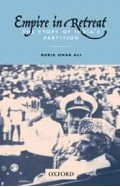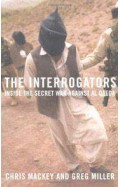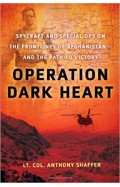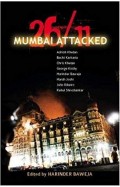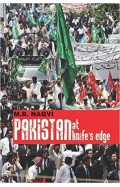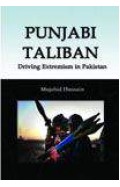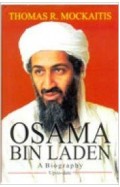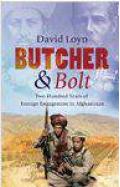Cross of Iron
By: John Mosier
-
Rs 495.00
- Rs 1,980.00
- 75%
You save Rs 1,485.00.
Due to constant currency fluctuation, prices are subject to change with or without notice.
We are offering a high discount due to slightly damage.
Acclaimed for his revisionist history of the German Army in World War I, John Mosier continues his pioneering work in "Cross of Iron", offering an intimate portrait of the twentieth-century German army from its inception, through World War I and the interwar years, to World War II and its climax in 1945. World War I has inspired a vast mythology of bravery and carnage, told largely by the victors, that has fascinated readers for decades. Many have come to believe that the fast ascendancy of the Allied army, matched by the failure of a German army shackled by its rigidity, led to the war's outcome. Mosier demystifies the strategic and tactical realities to explain that it was Germany's military culture that provided it with the advantage in the first war. Likewise, "Cross of Iron" offers stunning revelations regarding the weapons of World War II, forcing a re-evaluation of the reasons behind the French withdrawal, the Russian contribution, and Hitler as military thinker. Mosier lays to rest the notion that the army, as opposed to the SS, fought a clean and traditional war. Finally, he demonstrates how the German war machine succeeded against more powerful Allied armies until, in both wars, it was crushed by U.S. intervention. The result of thirty years of primary research, "Cross of Iron" is a powerful and authoritative reinterpretation of Germany at war.
We are offering a high discount due to slightly damage.
Acclaimed for his revisionist history of the German Army in World War I, John Mosier continues his pioneering work in "Cross of Iron", offering an intimate portrait of the twentieth-century German army from its inception, through World War I and the interwar years, to World War II and its climax in 1945. World War I has inspired a vast mythology of bravery and carnage, told largely by the victors, that has fascinated readers for decades. Many have come to believe that the fast ascendancy of the Allied army, matched by the failure of a German army shackled by its rigidity, led to the war's outcome. Mosier demystifies the strategic and tactical realities to explain that it was Germany's military culture that provided it with the advantage in the first war. Likewise, "Cross of Iron" offers stunning revelations regarding the weapons of World War II, forcing a re-evaluation of the reasons behind the French withdrawal, the Russian contribution, and Hitler as military thinker. Mosier lays to rest the notion that the army, as opposed to the SS, fought a clean and traditional war. Finally, he demonstrates how the German war machine succeeded against more powerful Allied armies until, in both wars, it was crushed by U.S. intervention. The result of thirty years of primary research, "Cross of Iron" is a powerful and authoritative reinterpretation of Germany at war.
Zubin Mehta: A Musical Journey (An Authorized Biography)
By: VOID - Bakhtiar K. Dadabhoy
Rs 525.00 Rs 1,050.00 Ex Tax :Rs 525.00
Empire in Retreat: The Story of India's Partition
By: Rabia Umar Ali
Rs 435.00 Rs 725.00 Ex Tax :Rs 435.00
The Interrogators Inside the Secret War Again Al Qaeda
By: Chris Mackey/Greg Miller
Rs 450.00 Rs 500.00 Ex Tax :Rs 450.00
Myths Illusions and Peace: Finding a New Direction for America in the Middle East
By: Dennis Ross
Rs 985.50 Rs 1,095.00 Ex Tax :Rs 985.50
Operation Dark Heart: Spycraft And Special Ops On The Frontlines Of Afghanistan And The Path To Victory
By: Anthony Shaffer
Rs 2,025.00 Rs 2,250.00 Ex Tax :Rs 2,025.00
Anna Hazare: The Face Of Indias Fight Against Corruption
By: Pradeep Thakur
Rs 240.00 Rs 300.00 Ex Tax :Rs 240.00
How To Win A Cosmic War God Globalization And The End Of War
By: Reza Aslan
Rs 625.50 Rs 695.00 Ex Tax :Rs 625.50
Empire in Retreat: The Story of India's Partition
By: Rabia Umar Ali
Rs 435.00 Rs 725.00 Ex Tax :Rs 435.00
The Interrogators Inside the Secret War Again Al Qaeda
By: Chris Mackey/Greg Miller
Rs 450.00 Rs 500.00 Ex Tax :Rs 450.00
No recently viewed books available at the moment.
Zubin Mehta: A Musical Journey (An Authorized Biography)
By: VOID - Bakhtiar K. Dadabhoy
Rs 525.00 Rs 1,050.00 Ex Tax :Rs 525.00
Empire in Retreat: The Story of India's Partition
By: Rabia Umar Ali
Rs 435.00 Rs 725.00 Ex Tax :Rs 435.00
The Interrogators Inside the Secret War Again Al Qaeda
By: Chris Mackey/Greg Miller
Rs 450.00 Rs 500.00 Ex Tax :Rs 450.00











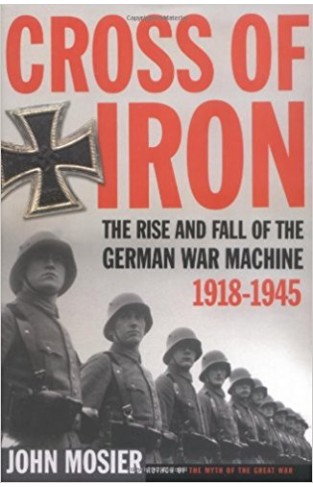

-120x187.jpg?q6)





